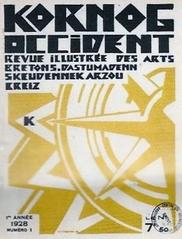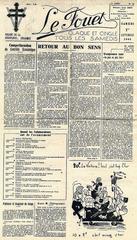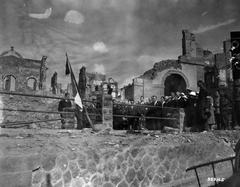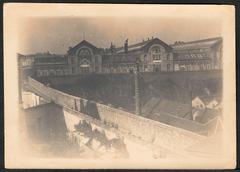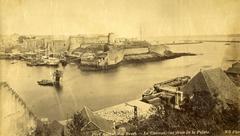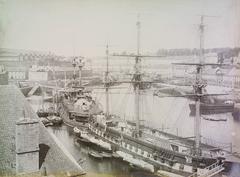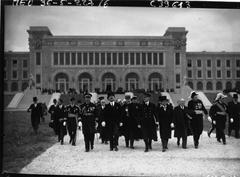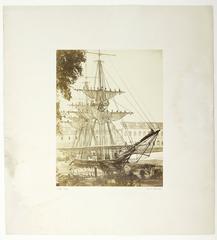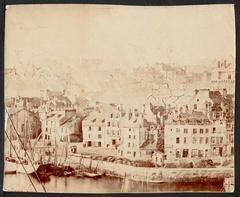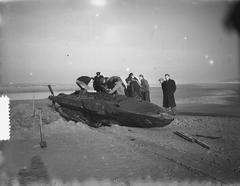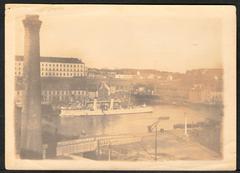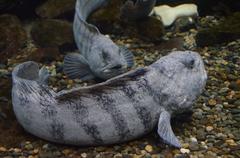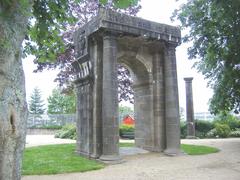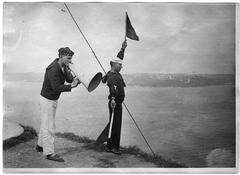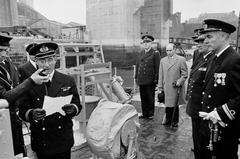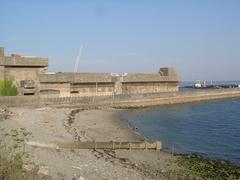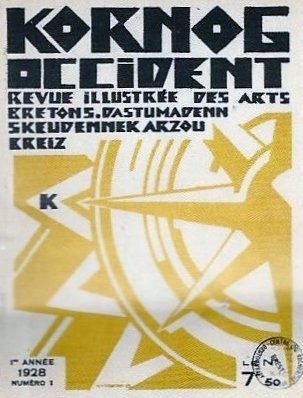
Centre for Breton and Celtic Research (CRBC) Brest: Visiting Hours, Tickets, and Historical Significance
Date: 14/06/2025
Introduction
The Centre for Breton and Celtic Research (CRBC), located in the heart of Brest, France, is a cornerstone of Brittany’s rich cultural and academic landscape. Founded in 1969 at the University of Western Brittany (Université de Bretagne Occidentale, UBO), the CRBC has grown into an internationally recognized institution dedicated to the study, preservation, and promotion of Breton and Celtic languages, literature, history, and heritage. Its comprehensive offerings—ranging from public exhibitions and events to one of Europe’s largest specialized libraries—make it an essential destination for researchers, students, and culturally curious visitors alike.
The CRBC’s importance extends beyond academia: it actively fosters connections with Celtic centers across Europe, preserves invaluable archives, and shares the living traditions of Brittany through public programming. With free admission, accessible facilities, and easy access via Brest’s public transportation, the CRBC is perfectly positioned for anyone seeking to explore the diverse tapestry of Celtic heritage.
This guide provides detailed information on the CRBC’s history, visitor services, opening hours, ticketing, tours, accessibility, and nearby attractions. For up-to-date announcements and specific inquiries, be sure to check the CRBC official website.
Table of Contents
- Introduction
- Historical Background and Institutional Development
- The Yves-Le Gallo Library: A Researcher’s Treasure
- Practical Visitor Information
- Nearby Attractions in Brest
- Research, Collaboration, and Academic Programs
- Leadership and Milestones
- Frequently Asked Questions (FAQ)
- Plan Your Visit: Tips and Resources
- References
Historical Background and Institutional Development
Established by Professor Yves Le Gallo in 1969, the CRBC was envisioned as a multidisciplinary hub for the study of Brittany and the wider Celtic world. Its mission encompasses research, documentation, and the dissemination of knowledge about Breton and Celtic languages, literature, and history. Since 1983, the CRBC has operated in partnership with the French National Centre for Scientific Research (CNRS), expanding its reach and reputation.
Today, the CRBC boasts a vibrant academic community, with over 30 permanent researchers, more than 100 affiliated scholars, and a thriving doctoral program. The center serves as France’s national coordinator for Celtic studies and maintains active collaborations across Europe, connecting Brittany with other Celtic regions such as Wales, Ireland, and Scotland.
The Yves-Le Gallo Library: A Researcher’s Treasure
At the core of the CRBC is the Yves-Le Gallo Library, recognized for its unparalleled collection of materials related to Breton and Celtic studies. With around 73,000 items—including rare manuscripts, books in Breton and related dialects, sound archives, photographs, and personal papers from notable Breton figures—the library is a major resource for both researchers and the public.
In 2019, the library received the prestigious Collex-Persée label, signaling its national significance and commitment to accessibility and preservation. Visitors can explore the holdings in a welcoming reading room, with expert staff available to assist with research or general inquiries.
Practical Visitor Information
Visiting Hours
- CRBC and Yves-Le Gallo Library:
- Open Monday to Friday, 9:00 AM–6:00 PM.
- Closed on weekends and university holidays.
- For specialized collections or research appointments, advance booking is recommended.
Tickets and Admission
- Admission: Free for all visitors. No tickets are required for entry.
- Special Events: Some workshops or lectures may require advance registration; details are available on the CRBC website.
Location and Accessibility
- Address: Victor Ségalen Faculty of Letters and Social Sciences, 20 Rue Duquesne, 29238 Brest Cedex 3, France.
- Campus: Located on the 3rd and 4th floors of the faculty building within the UBO campus.
- Getting There: The site is easily accessible by Brest’s public transport system and is a short distance from the city center.
- Accessibility: The center is fully wheelchair accessible. Visitors needing special accommodations should contact staff in advance.
Guided Tours and Events
- Exhibitions: The CRBC hosts regular exhibitions featuring Breton and Celtic manuscripts, artifacts, and multimedia presentations.
- Guided Tours: Available by appointment. Tours can be arranged in French, English, or Breton. Contact via email ([email protected]) or phone (+33 (0)2 98 01 63 31) to book.
- Workshops and Lectures: Throughout the year, the center organizes public lectures, conferences, and workshops, often featuring international experts.
Travel Tips
- Combine Your Visit: Located near major Brest attractions, the CRBC is ideal for pairing with a visit to the Château de Brest or the National Maritime Museum.
- Parking: Limited parking is available on campus; public transport is recommended.
- Photography: Allowed in most public areas, except where prohibited for preservation reasons.
Nearby Attractions in Brest
Enhance your visit to the CRBC by exploring Brest’s vibrant historical and cultural scene:
- Château de Brest: A medieval fortress with sweeping views and naval exhibits.
- National Maritime Museum: Chronicles Brest’s maritime history.
- Oceanopolis: An acclaimed ocean discovery park, ideal for families.
- Historic City Center: Offers Breton cuisine, shops, and cultural experiences.
For more visitor resources, see the Brest Tourism Office website.
Research, Collaboration, and Academic Programs
The CRBC is more than a public-facing cultural center: it is a hub for academic research, national coordination of Celtic studies, and international collaboration. The center publishes research, organizes conferences, and offers a renowned Master’s program in Celtic Languages and Cultures. The annual summer school and workshops attract students and scholars from across Europe.
Leadership and Milestones
Since its founding, the CRBC has been shaped by distinguished directors and generations of scholars, celebrating its 50th anniversary in 2019. Its legacy is marked by a commitment to cultural preservation, community engagement, and scholarly excellence.
Frequently Asked Questions (FAQ)
Q: What are the CRBC’s opening hours?
A: Monday to Friday, 9:00 AM–6:00 PM; closed on weekends and holidays.
Q: Is there an entrance fee?
A: No, general admission is free.
Q: Is the center accessible for visitors with disabilities?
A: Yes, the building is fully wheelchair accessible, and staff can provide assistance.
Q: Are guided tours available?
A: Yes, but advance booking is required.
Q: Can I access the archives as a visitor?
A: Access to some archives is by appointment, primarily for researchers; digitized materials are increasingly available online.
Q: Are children and families welcome?
A: Yes. While the collections are primarily academic, many exhibitions and events are family-friendly.
Q: Is parking available on-site?
A: Limited visitor parking is available; public transport is recommended.
Plan Your Visit: Tips and Resources
- Check Current Events: Visit the CRBC official website for up-to-date information on events, exhibitions, and visitor hours.
- Social Media: Follow the CRBC on social media for announcements, virtual tours, and cultural highlights.
- Download the Audiala App: Enhance your experience with interactive guides and content on Breton and Celtic culture.
- Contact: For specific inquiries, email [email protected] or call +33 (0)2 98 01 63 31.
References
- CRBC official website
- CRBC visitor’s guide
- CRBC practical information and directions
- CRBC academic programs and workshops
- Brest Tourism Office
Immerse yourself in the story of Brittany and the broader Celtic world at the CRBC—a gateway to centuries of living heritage, knowledge, and inspiration. Plan your visit today and become part of the vibrant cultural tapestry that defines Brest and Brittany.
